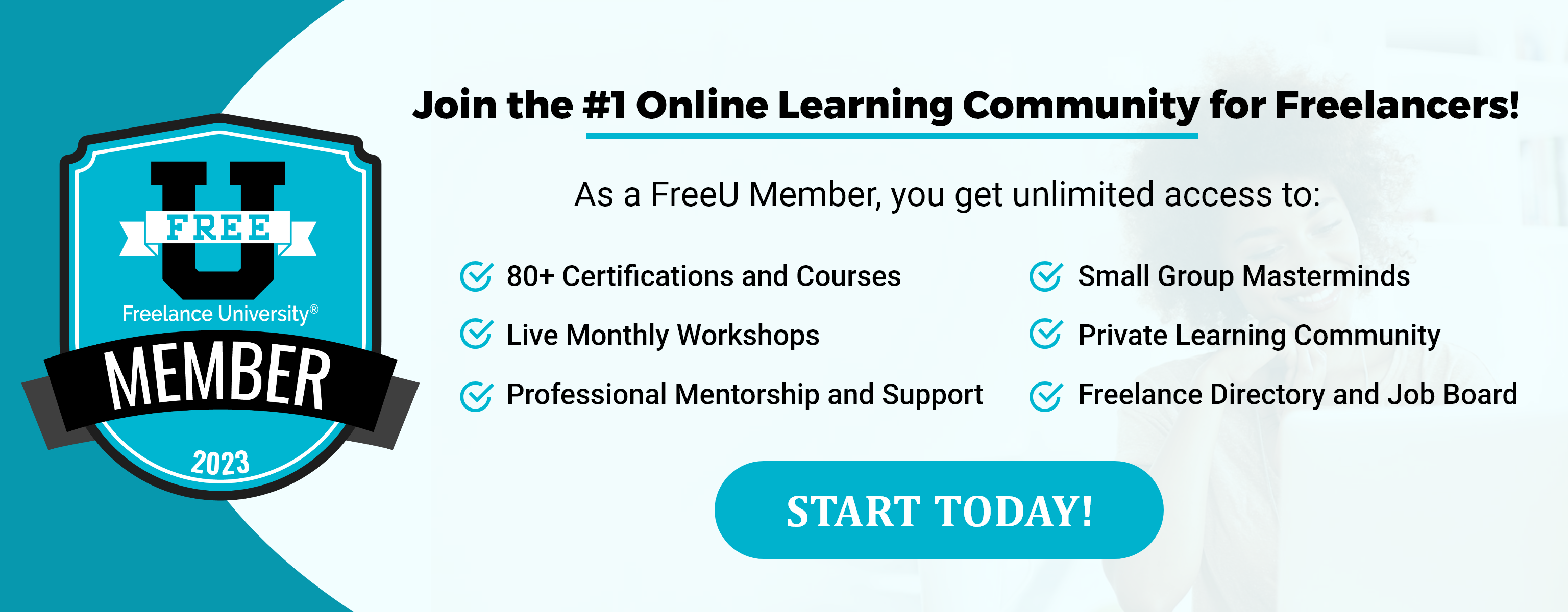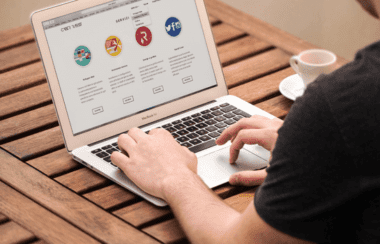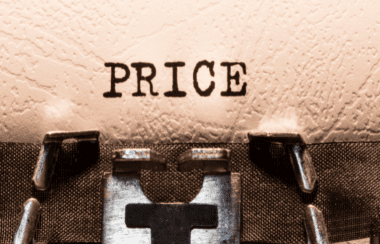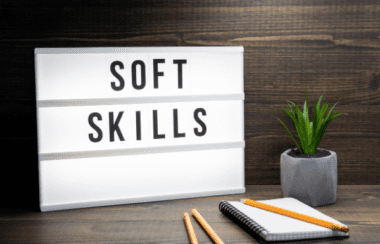Become a Freelance Podcast Producer: Essential Skills & Tips
By Craig Cannings
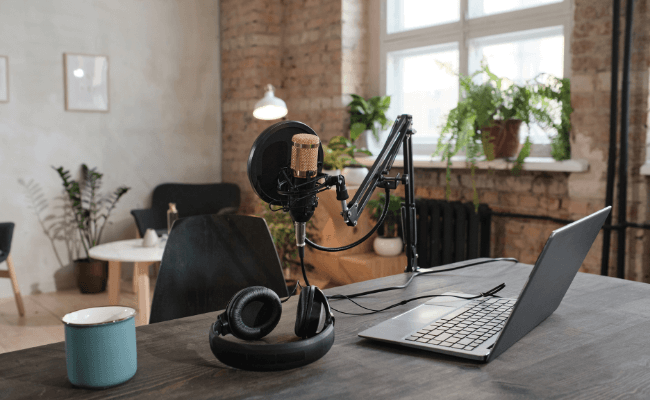
Are you looking for exciting work in a growing industry? If you enjoy developing technical skills and are interested in audio production, a career as a freelance podcast producer may be the perfect job for you!
In this role, you’ll often work on a project-by-project or retainer basis with multiple clients, where you’ll oversee all aspects of creating and maintaining a successful show:
– Concept development
– Coordinating recording sessions
– Audio editing
– Securing guests
– Writing engaging show notes
– Marketing the episodes across social media channels
– Monitoring listener feedback
– Ensuring consistency across branding elements.
And the future is bright when you choose to be a freelance podcast producer. Notably, an annual study from Edison Research reports that “42% of Americans 12+ have listened to a podcast in the last month, a new all-time high and up from 38% in 2022.”
As Edison Research Vice President Megan Lazovick said in the report,
“After two previous annual studies that showed clear effects from the COVID-19 disruptions, the trends in audio and social media habits seem to be back on pattern. The growth of online audio and podcasting to record high levels is exciting to reveal.”
In this blog post, we’ll dive deep into essential techniques and strategies to elevate your podcast production game. We’ll explore audio editing methods for enhancing sound quality and explain how to assist clients with recording session setups. You’ll also learn about finding expert guests for podcasts using platforms like MatchMaker.fm, as well as building relationships with industry experts.
In addition, we’ll share tips for writing compelling summaries highlighting key points from each episode and repurposing content into blog posts or social media updates. And, since navigating compensation rates can be tricky in the podcasting world, we’ll provide insight on recommended resources so you can determine your pricing.
Table Of Contents: How to Become a Freelance Podcast Producer
Four Steps to Becoming a Freelance Podcast Producer
1. Develop Podcast Production Skills.
– Audio Editing Techniques for Enhancing Sound Quality
– Assisting Clients with Recording Sessions Setup
– Working Independently and Collaboratively
– Mastering Podcast Tools of the Trade
2. Find Expert Guests for Podcasts.
– Guest Sourcing with MatchMaker.fm
– Building Relationships with Industry Experts
3. Create Engaging Show Notes.
– Writing Compelling Summaries Highlighting Key Points from Each Episode
– Repurposing Content into Blog Posts or Social Media Updates
4. Align Pricing with Podcast Industry Rates.
– Navigating Compensation Rates in the Podcasting Industry
– Build a Thriving Career as a Freelance Podcast Producer!
Four Steps to Becoming a Freelance Podcast Producer
1. Develop Podcast Production Skills.
To become a successful freelance podcast producer, it’s essential to develop skills in audio production and learn how others have built profitable businesses. Gaining expertise across multiple aspects of podcasting, such as editing and recording sessions assistance, will help you offer comprehensive services to clients.
Audio Editing Techniques for Enhancing Sound Quality
The first step towards becoming a skilled freelance podcast producer is mastering audio editing techniques that can enhance sound quality. You’ll need to familiarize yourself with popular audio editing software like Adobe Audition, GarageBand, or Audacity. Using these tools, you can reduce background noise, balance volume levels, and apply effects to improve the listening experience.
– Noise reduction: Use built-in features or plugins like Noise Reduction in Adobe Audition or Noise Gate in GarageBand to minimize unwanted background sounds.
– Equalization (EQ): Adjust the frequency balance of your recordings by using EQ settings tailored for podcasts; this helps emphasize voices while reducing harshness and sibilance.
– Dynamics processing: Apply compression and limiting effects on your tracks so they maintain consistent volume levels throughout each episode without distortion at high volumes.
Assisting Clients with Recording Sessions Setup
Beyond audio editing capabilities, you should also be able to assist clients with setting up their recording sessions. This includes providing guidance on selecting appropriate equipment like microphones (Shure SM7B is a popular choice among podcasters), audio interfaces, and headphones. Additionally, you can offer advice on optimal room acoustics and microphone placement to ensure high-quality recordings.
Another valuable service is remote recording assistance, where you guide clients through the process of connecting their equipment and software for a seamless session. Familiarize yourself with popular remote recording platforms like SquadCast, Zencastr, or Cleanfeed to provide expert support during these sessions.
Working Independently and Collaboratively
Along with hard skills like technical knowledge, your role as a freelance podcast producer will require soft skills that you may already possess from previous work. In a previous blog post titled “Discover Your Ideal Freelance Career Path in 2023,” we discuss how your unique skills and personality traits play a role in past experiences and can prepare you for the future.
Specifically, podcasting services require soft skills like these:
– Adaptability: Manage a variety of tasks related to the production of a podcast — tasks may vary from client to client.
– Attention to Detail: Pay close attention to dialogue and ambient noise in podcast recordings so you know how to improve the quality.
– Effective Communication: Work collaboratively with clients by listening closely and communicating effectively so you understand what they need.
– Self-motivation: Be able to work independently on podcast episodes with no supervision when you’re editing audio.
Mastering Podcast Tools of the Trade
As you develop podcast production skills, you’ll need a toolbox so you’re equipped to serve clients. To illustrate, one of our FreeU team members is a freelance podcast producer, and he’s provided a list of favorite tools and apps that are essential when you’re starting out and building your podcasting services:
– Find a dedicated office space so you can shut out distractions.
– Invest in an ergonomic office chair so you’ll be comfortable during long editing sessions.
– Wear noise-canceling headphones so you can hear the podcast recording.
– Use online scheduling tools like Calendly or Book Like A Boss to schedule podcast guests or meetings with clients.
– Master audio editing software like Audacity, Adobe Audition, or GarageBand (as mentioned above).
– Use an audio post production tool like Auphonic to balance levels, reduce noise, and create a professional and polished-sounding podcast.
– Upload podcast episodes to a podcast hosting platform like Libsyn or Podbean, making them available to Apple Podcasts and other major directories.
And now that you have your toolbox filled, it’s time to help your clients find podcast guests.
2. Find Expert Guests for Podcasts.
Finding expert guests for podcasts is a crucial part of creating an engaging podcast. In fact, the quality of the guests often impacts the quality of the podcast. As a freelance podcast producer, you can provide a valuable service by finding expert guests who will address topics that are relevant and interesting to your clients’ target audience.
Guest Sourcing with MatchMaker.fm
MatchMaker.fm is a platform designed specifically to connect a podcast host with potential guests. By creating an account on MatchMaker.fm, you can access a broad range of professionals in different fields who are eager to share their insights on podcasts. You can search by topic or industry and reach out directly to potential guests through the platform’s messaging system.
– Create a comprehensive profile that highlights your client’s podcast focus and goals.
– Browse available experts by using filters based on relevant keywords or categories.
– Contact potential guests directly through the platform’s built-in messaging feature.
– Keep a list of favorite contacts for future episodes or collaborations.
Building Relationships with Industry Experts
In addition to using platforms like MatchMaker.fm, it’s essential to build relationships within your client’s niche market. Networking events (both online and offline), social media groups, forums, conferences — these are all excellent places where you might discover interesting people eager to share their expertise as podcast guests.
– Join Facebook groups related to your client’s industry: Participate actively in discussions while keeping an eye out for people who could make great interviewees.
– Follow influencers on Twitter: Engage them regularly by retweeting their content, responding to their tweets, and building rapport. This can lead to potential collaborations down the line.
– Attend industry conferences: Networking in person (or virtually) at events is an excellent way to meet experts who may be interested in appearing on your client’s podcast. For example, Podcast Movement hosts events like Podcast Movement 2023 and Evolutions 2024.
By honing your guest-sourcing skills as a freelance podcast producer, you’ll not only help clients create engaging episodes but also establish yourself as a valuable contributor to the growing world of podcast production services. With the right relationships, you can create interesting and informative conversations with industry leaders that will help your client’s audience learn more about their topics of interest.
Next, we’ll discuss the steps to writing show notes that emphasize important ideas from each podcast episode.
3. Create Engaging Show Notes.
These summaries not only provide listeners with an overview of the content but also drive SEO traffic. Episode show notes can also be repurposed into other formats like blog posts or social media updates, diversifying your clients’ content and giving it new life.
In this section, we’ll show you how to craft interesting show notes that emphasize important points from each episode and suggest methods of reworking the content.
Writing Compelling Summaries Highlighting Key Points from Each Episode
A well-written summary should include the main topics discussed in the episode, any notable quotes or insights shared by guests, and relevant links to further reading, tools, and resources. To ensure your show notes are both informative and engaging:
– Begin the episode summary with a concise introduction that establishes its tone.
– Mention any special guests or experts featured in the conversation.
– List important discussion points using bullet points or numbered lists for easy readability.
– Add timestamps next to major topics so listeners can easily navigate through specific sections of interest within the audio file.
Creating engaging show notes is a key component to any successful podcast, and with the right approach you can craft compelling summaries that draw in listeners.
Repurposing Content into Blog Posts or Social Media Updates
Beyond creating detailed summaries for your podcast episodes, consider sharing this material across different platforms to maximize engagement. Here are some ideas on how you can repurpose your existing content:
– Create Blog Posts: Turn key takeaways from each episode into full-length articles published on your website’s blog section. This will help drive organic search traffic while providing additional value to your audience.
– Design Social Media Graphics: Create eye-catching visuals that highlight memorable quotes or interesting facts from the episode, and then share them across your social media platforms. Tools like Canva make it easy to design professional-looking graphics without any design experience.
– Create Short Video Clips: Edit short video snippets featuring highlights from each episode and post them on platforms such as Instagram, Facebook, or LinkedIn. This can help attract new listeners who may not have discovered your podcast otherwise. Forbes offers some great tips on repurposing podcast content for different channels; for example, you can also post a podcast video on YouTube.
Incorporating these strategies into your freelance podcast production services will set you apart from competitors while providing extra value to clients seeking support in managing their podcasts.
Next, by researching compensation rates in the podcasting industry, you’ll be able to make informed decisions about pricing when negotiating contracts.
4. Align Pricing with Podcast Industry Rates.
As more and more businesses enter public media spaces, the Association of Independents in Radio (AIR) is publishing resources with suggested rates of compensation for freelancers. By familiarizing yourself with these rate guides and learning how to negotiate fair practices when working with clients, you can ensure that you receive appropriate payment for your podcasting services.
Navigating Compensation Rates in the Podcasting Industry
Although rates vary, you can get an idea of what others charge based on role and experience. For instance, the AIR’s 2021 Rate Guide provides definitions of different tasks and best practices for determining your rates, including how much to add so you account for inflation.
AIR also offers a Day Rate Calculator so you can consider charging a certain amount per day, taking into account the percentage of overhead in your business.
Beyond these general guidelines provided by AIR, remember to consider factors like project complexity and scope when determining your fees. Additionally, don’t hesitate to research what other freelancers are charging for similar podcasting services through platforms like Upwork, so you can better gauge where your rates fall within market standards.
In addition to setting competitive prices based on experience levels and industry trends, developing strong negotiation skills will help protect your interests while building positive relationships with clients.
To further support your freelance podcast production business, consider joining professional organizations like Podcast Movement or attending industry events to network with other professionals and stay informed about the latest developments in the field.
Build a Thriving Career as a Freelance Podcast Producer!
When you become a freelance podcast producer, you have a fulfilling career ahead of you, and you can stand out by honing your skills. But, as we say in our Podcast Production Specialist course, podcasting is social media. It doesn’t need to be perfect. Instead, it needs to be authentic with the style and personality of the host.
As you master the tools of the trade, you’ll develop an ear for content that sounds over-produced, and you’ll help communicate your client’s true voice and brand. You’ll become an important part of their content marketing strategy.
So, start building your freelance podcast production business today! At Freelance University, we’ll provide all the support, training, and resources you need to build a thriving career in this growing industry.
